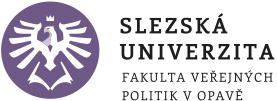Social Pathology and Prevention 2019, 5(1):31-39 | DOI: 10.25142/spp.2019.008
CHILD OF ADDICTED PARENTS – THE OVERLOOKED MEMBER IN A FAMILY
- Faculty of Education, University of Prešov, Department of Special Education
Children of addicted parents often escape professional interventions and the social system, because their needs and the responses resulting from the failure to fulfil them are not diagnosed correctly. Although they are not typical recipients of special education interventions, we may take them as children with special needs in the emotional area even if though their symptoms are not necessarily evident. The aim of the paper is to help to understand the perception and behaviour of a child from a family with an addicted parent. Based on analyses of foreign research projects, we have summed up the specific features of such children, their most frequent responses and coping with difficulties. At the same time, we will try to outline the opportunities and challenges of the work with such children and the assistance that may help them compensate for the traumatic experiences from their childhood when they grow up.
Klíčová slova: addicted individual, child at risk, child of an addicted parent, mental vulnerability
Vloženo: 4. červen 2019; Přijato: 12. září 2019; Zveřejněno: 8. duben 2020 Zobrazit citaci
Reference
- AAETS (The American Academy of Experts in Traumatic Stress). (2014). Effects of parental substance abuse on children and families. Retrieved May 19, 2019, from http://www.aaets.org/article230.htm
- CASA (The National Center on Addiction and Substance Abuse at Columbia University). (2005). Family matters: Substance abuse and the American family. New York: CASA.
- Christoffersen, M. N., & Soothill, K. (2003). The long-term consequences of parental alcohol abuse: a cohort study of children of Denmark. Journal of Substance Abuse Treatment, 25(2), 107-116.
 Přejít k původnímu zdroji...
Přejít k původnímu zdroji...  Přejít na PubMed...
Přejít na PubMed... - Conners, N. A., Bradley, R. H., Mansell, L. W., Liu, J. Y., Roberts, T. J., Burgdorf, K., & Herrell, J. M. (2003). Children of mothers with serious substance abuse problems: an accumulation of risks. The American Journal of Drug and Alcohol Abuse, 29(4), 743-758.
 Přejít k původnímu zdroji...
Přejít k původnímu zdroji...  Přejít na PubMed...
Přejít na PubMed... - Drake, R. E., & Vaillant, G. E. (1988). Predicting alcoholism and personality disorder in 33-year longitudinal study of children of alcoholics. British Journal of Addiction, 83(7), 799-807.
 Přejít k původnímu zdroji...
Přejít k původnímu zdroji...  Přejít na PubMed...
Přejít na PubMed... - Dubayová, T. (2015). Mental vulnerability as a factor of school performance in pupils of young school age - report from pilot study. Annals of Psychiatry and Mental Health, 3(3), 1028-1030.
- Dubayová, T., & Chovanová, E. (2017). Mental health of pupils with ADHD in Slovak republic - a pilot study. In Zborník príspevkov z medzinárodnej vedeckej konferencie EDULEARN17, 3.-5. júl, Barcelona, Španielsko (pp. 8463-8467).
 Přejít k původnímu zdroji...
Přejít k původnímu zdroji... - Dubayová, T., & Kochová, H. (2016). Mentor ako facilitátor školskej úspešnosti žiakov z rómskeho etnika na strednej škole. Prešov: Roma Education Fund.
- EMCDDA (European Monitoring Centre for Drugs and Drug Addiction). (2010). Children's voices: experiences and perceptions of European children on drug and alcohol issues. Luxembourg: The Publications Office of the European Union.
- Eplov, L. F., Petersen, J., Jørgensen, T., Johansen, C., Birket-Smith, M., Lyngberg, A. C., & Mortensen, E. L. (2010). The mental vulnerability questionnaire: a psychometric evaluation. Scandinavian Journal of Psychology, 51(6), 548-554.
 Přejít k původnímu zdroji...
Přejít k původnímu zdroji...  Přejít na PubMed...
Přejít na PubMed... - Green, M., & Solnit, A. J. (1964). Reactions to the threatened loss of a child: a vulnerable child syndrome. Pediatrics, 34(1), 58-66.
 Přejít k původnímu zdroji...
Přejít k původnímu zdroji...  Přejít na PubMed...
Přejít na PubMed... - Hobson, A. J. (2012). Fostering face-to-face mentoring and coaching. In S. J. Fletcher, & C. A. Mullen (Eds.), The SAGE Handbook of Mentoring and Coaching in Education (pp. 59-73). Thousand Oaks (CA): SAGE Publication.
 Přejít k původnímu zdroji...
Přejít k původnímu zdroji... - Kožárová, J., & Podhájecká, M. (2014). Dieťa v predškolskom veku s problémovým správaním - prevalencia a faktory podmieňujúce jeho vznik. Špeciálny pedagóg, 3(1), 16-25.
- Massad, S., Nieto, F. J., Palta, M., Smith, M., Clark, R., & Thabet, A. (2009). Mental health of children in Palestinian kindergartens: resilience and vulnerability. Child and Adolescent Mental Health, 14(2), 89-96.
 Přejít k původnímu zdroji...
Přejít k původnímu zdroji... - Modul 2. (2010). Vplyv ťažkostí v oblasti duševného zdravia rodičov na deti. Retrieved May 19, 2019, from http://www.strong-kids.eu/index.php?menupos=7
- Pretis, M., & Dimova, A. (2004). Frühförderung bei Kindern psychisch kranker Eltern. München: Ernst Reinhardt Verlag.
 Přejít k původnímu zdroji...
Přejít k původnímu zdroji... - Rutter, M. (1979). Protective factors in children's responses to stress and disadvantage. In M. W. Kent, & J. E. Rolf (Eds.), Primary Prevention of Psychopathology: Social Competence in Children (pp. 49-74). Hanover: University Press of New England.
- Rutter, M. (1990). Psychosocial resilience and protective mechanism. In J. Rolf, A. S. Masten, D. Cicchetti, K. H. Nüchterlein, & S. Weintraub (Eds.), Risk and protective factors in the development of psychopathology (pp. 181-214). Cambridge: Cambridge University Press.
- Schäfer, G. (2011). Family functioning in families with alcohol and other drug abuse. Social Policy Journal of New Zealand, 2011(37), 1-17. Retrieved May 19, 2019, from https://www.msd.govt.nz/about-msd-and-our-work/publications-resources/journals-and-magazines/social-policy-journal/spj37/37-family-functioning-in-families-with-alcohol-and-other-drug-addiction.html
- Solis, J. M., Shadur, J. M., Burns, A. R., & Hussong, A. M. (2012). Understanding the diverse needs of children whose parents abuse substances. Current Drug Abuse Reviews, 5(2), 135-147.
 Přejít k původnímu zdroji...
Přejít k původnímu zdroji...  Přejít na PubMed...
Přejít na PubMed... - Uehlinger, C., & Tschui, M. (2009). Když někdo blízký pije. Praha: Portál.
- Vašek, Š. (2011). Základy špeciálnej pedagogiky. Bratislava: Sapientia.
- Woititzová, J. G. (1998). Dospělé děti alkoholiků. Praha: Columbus.
Tento článek je publikován v režimu tzv. otevřeného přístupu k vědeckým informacím (Open Access), který je distribuován pod licencí Creative Commons Attribution 4.0 International License (CC BY 4.0), která umožňuje distribuci, reprodukci a změny, pokud je původní dílo řádně ocitováno. Není povolena distribuce, reprodukce nebo změna, která není v souladu s podmínkami této licence.



